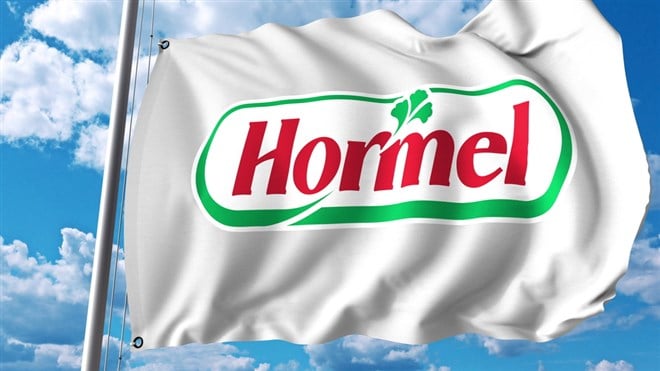
It's easy to think that a company that sells food, in any capacity, has something of an edge in the market. After all, people always need food regardless of economic conditions, so whether it's boom times or recession, the end result should stay about the same. For Hormel (NYSE:HRL), the company lost about 4% of its share price in pre-market trading after revealing some oddly narrowly disappointing sales losses.
What a Difference a Penny Makes
The news wasn't stellar for Hormel, but it hardly seems like the kind of news that should have had investors running for the door in such fashion. The company posted profit of $234.4 million, which worked out to $0.43 per share. Sounds good, but a Refinitiv consensus was calling for the company to pull in $0.44 per share. Revenue itself was also down a peg under where it was hoped to hit, down 3% over the same time last year to $2.4 billion.
A bit of a hit, but it actually got worse. The company's operating income for the quarter came in at $1.1 billion, down 8% against the same time last year. Operating margin was down even worse, falling to 11.5% against 12.6% the previous year.
The company did have a few bright spots, including improved cash flow from operations, which was up 22% to $1.1 billion, and its operating free cash flow was up a similar 21% to $800 million.
Circumstances Delivered a Blow
Much of Hormel's fortunes this quarter were determined by outside circumstances, it seemed, as the company both benefited and lost ground from points beyond its control. For instance, the company had an effective tax rate this year of 15.9% as opposed to the 21% it paid the previous year. However, not surprisingly, Hormel was hit hard by the coronavirus and the related closures state and local governments forced into place. With restaurants shuttered or operating at percentages of capacity, the demand for Hormel products on that front fell accordingly.
Moreover, since Hormel is actually the second-largest turkey brand—it controls the Jennie-O brand name—the calls to shutter Thanksgiving celebrations will deliver their own swift kick to Hormel's bottom line.
These points are buoyed somewhat by Hormel's variety of brands. The same company that handles Jennie-O also handles Black Label and Skippy peanut butter, among a range of others, so whatever you're having for lunch, there's at least a decent chance that Hormel is somehow involved.
Recovering Analysts and Recovering Operations
The analyst picture, based on our latest research, suggests that there's some queasiness afoot therein, but things are actually looking up. The company is currently rated a “hold”, with a makeup of seven “hold” ratings and one “buy” rating. That's actually an improvement over this time last month, where there was one “sell” rating to add to that mix.
The price target has likewise been on an upward cant, going from $45.71 last month—which is where it was three months ago too—to $46.67. Given that the company currently trades at $48.65, there may need to be some adjustment here. There's further good news for Hormel investors, too; the company actually raised its dividend by 5%, which now puts it at $0.98 per share.
It's hard to look at a company that sells vital necessities and not call it a good investment. Better yet, it's a company that actually sells many of its own potential substitutes; if you find your economic situation a mite shaky, it's always possible to switch from ham to peanut butter for a while, and Hormel can cover each waterfront well. What it loses in one subsidiary it can make up for in another, and even if the switch isn't exactly a 1:1 ratio, the losses are sufficiently ameliorated to where a disaster becomes a slight hiccup.
Given that Hormel lost almost 4% of its stock value after “hiccuping” a penny down on its earnings report, though, the stakes may just be higher for Hormel investors. Granted, the loss of restaurants and schools is hurting Hormel substantially—there's no way to sell substitute goods to a closed business or school—but hopefully, a “post-COVID” world is just around the corner thanks to growing numbers of vaccines and coronavirus treatment options. That will give Hormel a chance to come back properly, offering up its wide range of food products to the fullest range of customers again.
Companies in This Article: